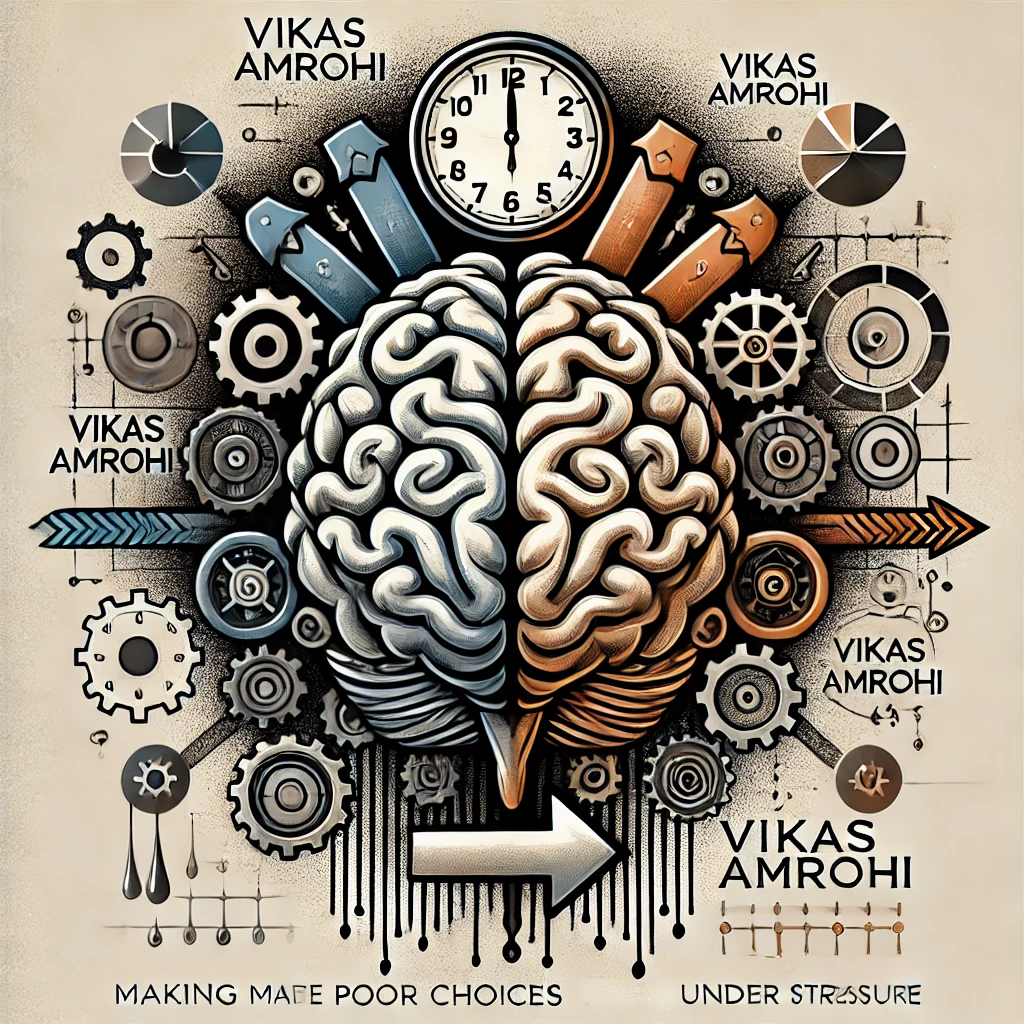
Decision Fatigue: Why We Make Poor Choices at the End of the Day
Introduction
Have you ever found yourself making impulsive or regrettable decisions at the end of a long day? Whether it’s grabbing fast food for dinner or overspending on unnecessary items, these choices often stem from a phenomenon known as decision fatigue.
Decision fatigue occurs when our ability to make rational choices deteriorates after a prolonged period of decision-making. It’s a psychological toll that affects everyone, from CEOs to students, and understanding it can help us make smarter decisions.
What Is Decision Fatigue?
Our brains have a limited reserve of mental energy for making decisions each day. As we use this resource throughout the day, it becomes depleted, leading to cognitive overload. When decision fatigue sets in, we either:
- Make Poor Choices: Opt for what’s easy rather than what’s right.
- Avoid Decisions Altogether: Procrastinate or defer important choices.
Signs of Decision Fatigue
- Impulsive Decisions: Acting without weighing consequences, like impulse purchases.
- Avoidance Behavior: Putting off decisions or delegating them unnecessarily.
- Increased Frustration: Feeling irritated by seemingly simple choices.
- Difficulty Focusing: Struggling to weigh options effectively.
The Science Behind Decision Fatigue
Studies show that decision fatigue is linked to the depletion of self-control and willpower. These mental resources operate like a muscle: the more we use them, the more they tire out.
For example, a famous study found that judges were more likely to deny parole later in the day, as their mental reserves had been drained by previous decisions. This highlights how decision fatigue can impact even critical choices.
How Decision Fatigue Impacts Everyday Life
- At Work
Making numerous decisions—emails, meetings, and strategies—can lead to burnout by afternoon, reducing productivity and creativity. - In Relationships
Decision fatigue can cause irritability and conflict, as people struggle to communicate effectively when mentally drained. - In Health
Poor dietary choices in the evening, like reaching for junk food, are often influenced by decision fatigue.
How to Combat Decision Fatigue
- Simplify Your Choices
Reduce the number of decisions you need to make daily. For instance:
- Plan meals ahead of time.
- Wear a “uniform” of go-to outfits to avoid wardrobe decisions.
- Prioritize Important Decisions
Make critical decisions early in the day when your mental energy is at its peak. - Set Routines
Create consistent habits to eliminate unnecessary decisions. For example, schedule a regular workout time instead of deciding daily when to exercise. - Delegate
If possible, delegate smaller decisions to others to free up mental capacity for more significant ones. - Take Breaks
Allow your brain to recharge with short breaks throughout the day, especially after intense decision-making sessions.
Decision Fatigue in Behavioral Science and Marketing
Marketers often exploit decision fatigue to influence consumer behavior. For instance:
- Subscription Traps: Offering free trials that auto-renew, knowing fatigued consumers are unlikely to cancel.
- Checkout Impulses: Placing tempting items near the register to capitalize on tired decision-makers.
Understanding decision fatigue can help you avoid these traps and make more intentional choices.
Why It Matters
Recognizing and managing decision fatigue isn’t just about improving productivity—it’s about enhancing your overall quality of life. By conserving mental energy for what truly matters, you can make better choices and avoid the pitfalls of impulsive or poorly thought-out decisions.
Conclusion
Decision fatigue is an invisible force that shapes our daily lives. By understanding its causes and impacts, we can take proactive steps to protect our mental energy and make more thoughtful choices.
Remember, it’s not about avoiding decisions but managing them wisely. Simplify, prioritize, and give yourself grace—you’re only human, after all.
Stay tuned for more insights into the psychology of decision-making and how to navigate life’s challenges with clarity and confidence.
